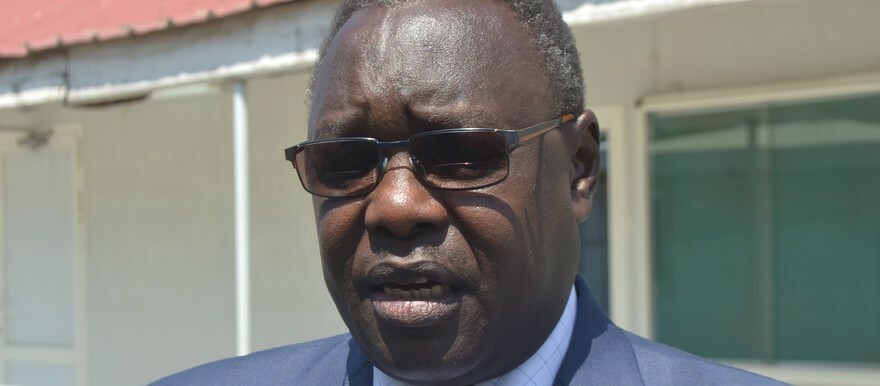The South Sudanese government on Thursday made a fervent plea to the international community, urging them to contribute funds to support the upcoming general elections.
Addressing the Reconstituted Joint Monitoring and Evaluation Commission (R-JMEC) in Juba, Dr. Martin Elia Lomuro, the Minister for Cabinet Affairs, emphasized that the government’s budget allocations were insufficient. He called for generous contributions from the region, continent, and international partners, highlighting the substantial financial demands posed by the Electoral and Constitution-making processes.
“We are committed to transparently providing detailed budget sheets to the region, continent, and international partners. We invite them to carefully review and identify areas where they can assist South Sudan in its pursuit of a democratic transition by December 2024,” stated Elia.
He further outlined that, among the various costs associated with the elections, $40 million is required for crafting a new constitution. To address this need, the government has proposed a supplementary budget, covering only 63 percent of the total amount required.
Elia also mentioned that the estimated funds required to facilitate the electoral process amount to 253.6 billion South Sudanese Pounds. However, the government has only managed to allocate a supplementary budget covering 37.1 billion SSP, representing just 15 percent of the total amount needed. This allocation is intended to address various costs, including security measures essential for the electoral process.
For his part, Charles Tai Gituai, the Interim Chairperson of R-JMEC, emphasized the significance of this year for South Sudan in preparing for its inaugural democratic process. He acknowledged the considerable work needed to establish an enabling environment for conducting free, fair, and credible elections, in accordance with the Agreement and the Roadmap.
Gituai stressed, “Much work needs to be done to create an enabling environment for the conduct of free, fair and credible elections, as per the Agreement and the Roadmap. That said, the prospects of delivering the country to a democratic dispensation should motivate all of us, the Parties in particular, to redouble efforts to achieve this historic goal smoothly.”
Expressing concerns about the government’s preparedness as the end of the transitional period approaches, Gituai questioned, “My overall assessment is that there is a significant appetite for elections to be conducted in a timely manner, and in accordance with the requirements of the Revitalized Peace Agreement. What is unclear, however, is how the RTGoNU and Parties to the Agreement will be able to complete the critical pending tasks and create a conducive environment for the conduct of credible elections within the time left.”
Gituai also expressed deep concerns as the year commenced, citing numerous reports of violence in various parts of the country, notably in the Abyei Administrative Area, as well as in Unity, Warrap, Western Bahr el Ghazal, and Jonglei States.
“Regrettably, as of the weekend of January 27-28, 2024, over 50 lives were lost in intercommunal fighting in Abyei, including two peacekeepers from the United Nations Interim Security Force for Abyei. These attacks are part of an ongoing pattern of violence between local communities in the area over the past weeks and months,” he stated.
“RJMEC calls for dialogue to disrupt the cycle of violence and emphasizes the crucial need for a culture of peace to dominate. The people of South Sudan face high stakes as they strive to fulfill their democratic aspirations through the upcoming inaugural elections as an independent nation. RJMEC emphatically reminds the RTGoNU of its responsibility, as outlined in Article 1.2.2 of the R-ARCSS, to establish enduring and sustainable peace, security, and stability,” reiterated Tai.
South Sudan is expected hold its elections in December this year.
President Salva Kiir is expected to face his longstanding rival, First Vice President Riek Machar, who has yet to confirm his candidacy.
The opposition has accused the Kiir administration of lacking the political will to hold elections. But Kiir said he is committed to free and fair elections in December.




